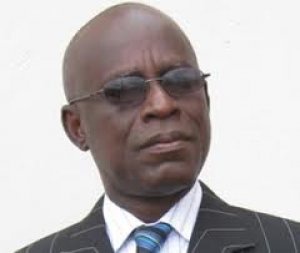Ambassador Kabral Blay-Amihere, Chairman of the National Media Commission (NMC), on Thursday renewed calls for the passage of a National Broadcasting Law to regulate the country’s broadcasting industry.
He made the call when answering questions at a one-day Media for Democracy Convention on the 2012 Election organized by the Ghana Journalist Association (GJA) and the United States Embassy at Takoradi.
The convention, which was under the theme “Towards Free, Fair and Peaceful Election: The Role of the Media”, was attended by media personnel, stakeholders and representatives of identifiable groups.
Ambassador Blay-Amihere said the law should be progressive to address concerns of the public about the broadcasting industry.
He said frequencies are allocated on business and technical grounds and the NMC, which is to regulate the industry lacks resources to do so.
Ambassador Blay-Amihere said the NMC also have the necessary framework to impose sanctions and is only charged to use all appropriate means to regulate standards.
He said the Private Broadcasters Association has come out with a code of conduct for its members but this is not binding.
Ambassador Blay-Amihere asked civil society organizations to join forces with the media to advocate for the passage of the law.
He said the NMC is beefing up its monitoring scheme and the Complainant Settlement Committee to speedily look into public complainants for the elections.
Professor Kwesi Jonah of the Institute of Democratic Governance said Ghana is emerging as a beacon of democracy in Africa and urged the government to continue to be totally committed to ensuring credible elections this year.
He said the country would derive numerous benefits when the elections are conducted free and fair.
Professor Jonah said free and fair elections would open the door for investment in the country and would be a giant step towards accelerated development.
He said one of the challenges of the elections is that neither of the countries two major political parties seems to have prepared themselves psychologically for defeat.
Professor Jonah said this could lead to trouble and tension in the event of electoral defeat because both of them are sure of winning.
He said another challenge is the creation of 45 additional constituencies by the Electoral Commission (EC) because it does not seem to be bipartisan support.
Professor Jonah said the numerous legal cases against the EC could stall the electoral process.
He expressed concern that the equipment for the identification of voters has not been procured and urged civil society to build their capacities to enable them to effectively play their watchdog role over the entire election process and the key players.
Ms Alison Bethel-Mackenzie, Executive Director of Vienna based International Press Institute, said according to the Reporters Without Borders, Ghana ranks 27 out of 175 countries for promoting free press.
She said Ghana is 5th out 25 countries in the sub-region for ensuring free press.
Ms Bethel-Mackenzie asked the Ghanaian media to cover issues that would promote peace, development and are pertinent to the country and the community.
Politics of Friday, 31 August 2012
Source: GNA

















